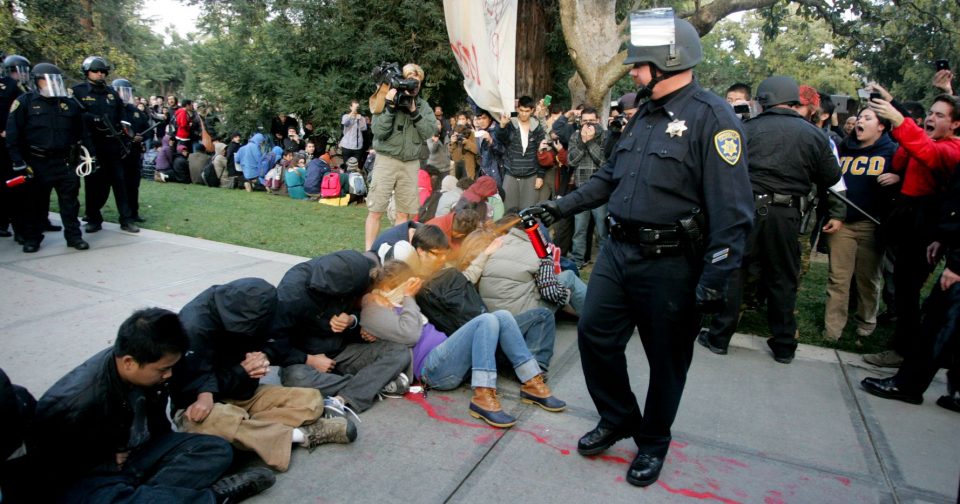In light of Tuesday’s violent clash between protesters and heavy-handed police in Charleston, here is the Libertarian solution. Again.
There exists a simple approach that can permanently end police brutality while making locals safer from potential riots: Treat community security like any other service, and let it be competed on the open market.
Economics has proven time and again that monopoly is bad for the customer—it increases costs and depresses quality, unfairly enriching and empowering the monopolist at customers’ expense, which is why monopolies are illegal. So why do we tolerate a monopoly on such an important service, that of protecting our most cherished rights?
Instead of forcing every citizen to fund and rely upon a single defense service provider (DSP)—the city, county, or state police—permit each person to subscribe to the DSP of her choice. Instead of the current failed one-size-fits-all approach, voluntary choice among multiple competing DSP options allows a whole range of services to fit the customers’ individual needs:
- an individual wanting a full-time officer by her side or at her door, or
- a group of neighbors simply wanting someone to patrol their properties, or
- a large group who just wants someone to call in response to a burglary or car accident.
If someone wants no protection at all and would prefer to defend her own life, liberty, and property with a bedside Remington, that option would be open to her as well.
The overall cost of such a system would be far less than the current monopoly which, like every monopoly, leads to unchecked costs. That overall cost would also be fairly paid—everyone would pay more or less according to how much service they use—rather than unfairly socializing it across everyone through mandatory taxation, whether they want it or not, like every other mandated socialist program (yes, the police department is inherently socialist).
How can such a system enforce laws which have nothing to do with rights protection, like those against speeding or marijuana use or peaceful protesting?
That’s where this idea is radical: It can’t. No one would subscribe to a DSP that provides such lousy service, turning against her with unnecessary (and violently enforced) restrictions she doesn’t want. But more importantly, such a system really has no need to enforce victimless crime laws against personal behavior.
If someone’s behavior isn’t hurting others, if it isn’t violating others’ rights, then there’s no need for the individual to stop.
If it does hurt others, then they engage their own DSP to protect and defend themselves and their property. And this is how both police brutality and the riots it provokes are solved: If DSPs can only succeed by providing quality service to their customers and protecting their rights, then they have no motivation for violent interactions with innocents, including peaceful protestors. Rather, they have strong financial incentives to avoid such confrontation (their success depends on their reputation), so peaceful protests are never provoked into violence.
Even if a riot does happen to break out for other reasons, the DSPs of local homeowners and businesses will already be present, not standing across the street to block and quell the riot, but standing alongside the street to protect their customers and customers’ property as the riot passes by.
This inherently passive rather than active response will inevitably lead to de-escalation—and that’s what everyone claims to want. So why not try it? We already know the current system is a failure. Dismantling it is a radical approach, but the alternative is to continue perpetuating a broken system.
For a more thorough analysis of the defense service providers approach, check out Gustave de Molinari’s groundbreaking work, The Production of Security .

